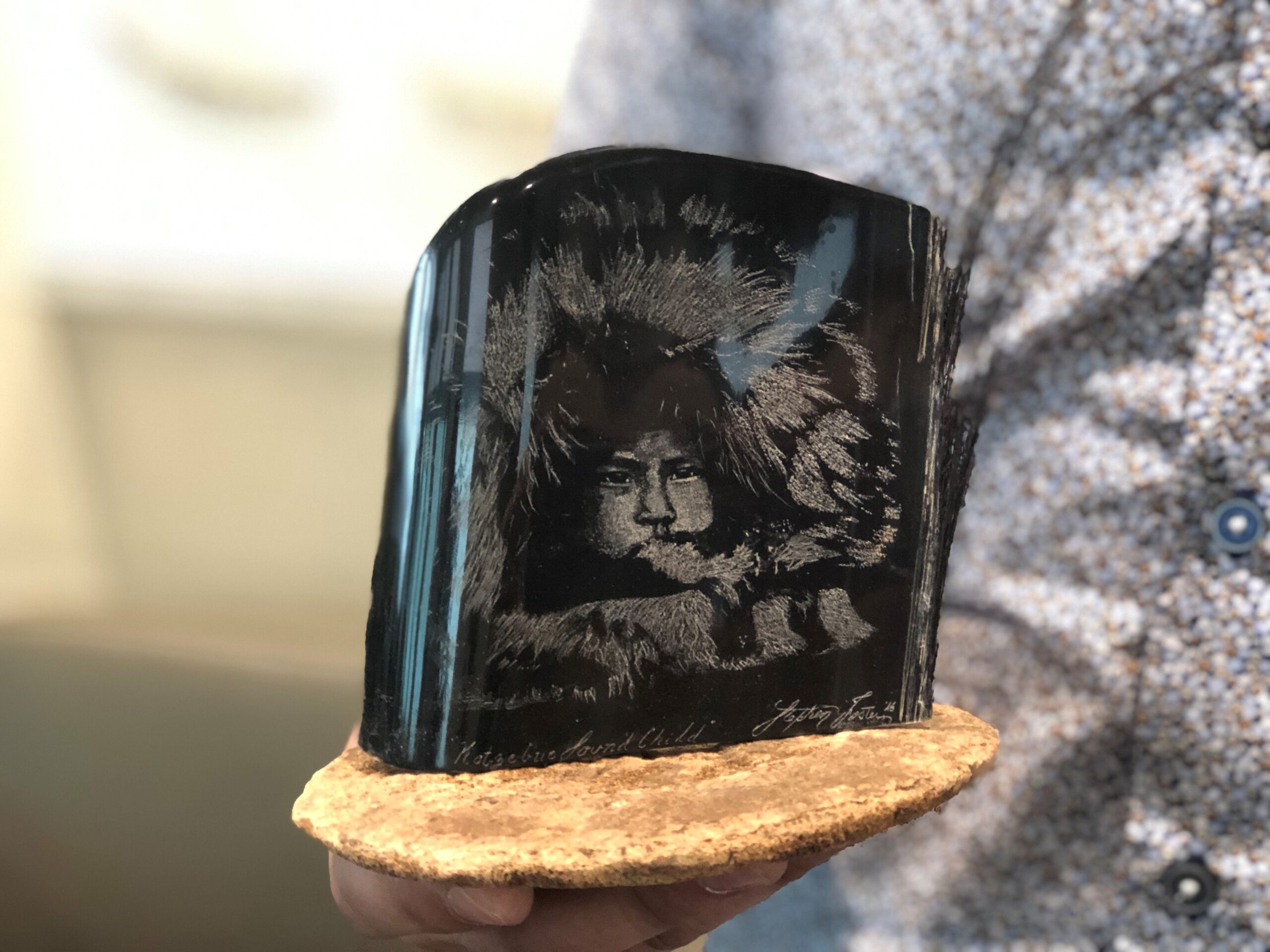 “When you draw on baleen, everything you see is white, as opposed to pencil and paper, where everything you draw is black. You have to trick your mind to draw white; I was so used to drawing everything that was black.”
“When you draw on baleen, everything you see is white, as opposed to pencil and paper, where everything you draw is black. You have to trick your mind to draw white; I was so used to drawing everything that was black.”
CIRI descendant Stephen Foster (Inupiaq) was used to seeing black. He first spent time at McLaughlin Youth Center, Anchorage’s state detention facility for juvenile offenders, as a seventh grader. “I’ve been in and out of jail since I was a kid – breaking into cars, stealing cars, going on joyrides through Canada,” Stephen said. “I have like seven felonies on my record.”
It wasn’t until the second half of an eight-year stint at Spring Creek Correctional Center, a maximum-security prison for men located in Seward, Alaska, that Stephen experienced what he called a “transformational” time.
“I can remember one of my uncles carving soapstone when I was a kid, and I’ve been drawing portraits of people since I was a teenager. Before that, it was animals. When I went to Spring Creek, I was surrounded by a lot of older Native guys who were carvers. They’d seen me drawing and told me, ‘Why don’t you come join us in the hobby shop and do something with your life.’”
“This last time I was in prison, for the first four years, I was still doing dumb stuff— doing drugs, living the lifestyle of a prisoner,” Stephen recalled. “The second four years, I got into the hobby shop.”
At Spring Creek, the inmates run a prison store, the profits of which are divided between nine different funds, including one that provides equipment for a hobby shop.
“When you’re in the hobby shop, you put all that money into buying tools and materials; if you get in trouble, you get kicked out for a year and they take all your stuff and you have to start over,” Stephen explained. “I wasn’t willing to risk losing all that. I’m a Christian now, but I wasn’t then; my higher power was the artwork.”
 Stephen not only honed his craft during his time in Spring Creek—expanding his repertoire beyond pencil and paper to include scrimshaw and jewelry-making—but he and the other hobby shop inmates created artwork that was auctioned off for a number of worthy causes, including the Alaska SeaLife Center, Special Olympics Alaska and Toys for Tots. To earn money to purchase art supplies, Stephen also worked as a prison custodian and caretaker.
Stephen not only honed his craft during his time in Spring Creek—expanding his repertoire beyond pencil and paper to include scrimshaw and jewelry-making—but he and the other hobby shop inmates created artwork that was auctioned off for a number of worthy causes, including the Alaska SeaLife Center, Special Olympics Alaska and Toys for Tots. To earn money to purchase art supplies, Stephen also worked as a prison custodian and caretaker.
He has been out of prison, clean and sober, for three years. As a condition of his release, he participated in Cook Inlet Tribal Council’s re-entry program, “which gave me something steady to go to every week,” he said. He is engaged to be married, has a 1-year-old daughter and dedicates six hours a day to scrimshaw, which he sells at local art shows, including CIRI’s annual Holiday Bazaar, and Anchorage galleries.
Stephen’s artwork may be purchased at Arctic Treasures Art Gallery in Anchorage, or by contacting him directly at (907) 444-8888, fosterstephen82@gmail.com, or by visiting alaskan-scrimshaw-and-native-art.business.site.



